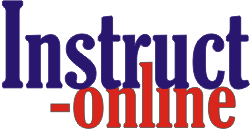
 Phone
(319) 626-2302
Phone
(319) 626-2302
Catalog Number : agmg1959
Title : Five Steps to Success Through Medical Device Innovation
Speaker : Michael Garvin
Webplay Recording Date : 5-28-2015
Webplay Price : $ 350 for two weeks viewing
Webinar Overview:
The Five Steps to Success through Medical Device Innovation Webinar will provide a market distinctive perspective on how to manage innovation in the medical device industry.
This is being presented by The MedDevInnovation Group, composed of some of the leading national and international experts in medical device innovation, commercialization and in navigating organizational interfaces among academia, government, and industry. The MedDevInnovation Group has a combined 100+ years of experience in life sciences, technology, and medical devices development with particular focus on research, strategic management, financing, marketing, and deployment.
Innovation is one of the most effective and successful vehicles for an individual or company to achieve success. This is no more applicable than in the medical device industry. However, innovation has to be carefully managed. The faculty will carefully explain each of the Five Steps that are needed to generate innovation and then how to harness these Steps to ensure success. This includes how to manage the threats and opportunities presented by incumbent corporations, those companies with a strong market position in the industry.
There are always dominant companies in the market sector where the invention will try to be placed. The strategy in managing the incumbent corporations will determine how likely there will be a successful commercialization of your technology. This session will help both the incumbent corporations and the inventors learn new ways to collaborate. You are encouraged to come with your own ideas and examples of innovation to be discussed in this webinar. Please understand that innovation requires a coordinated process of change. The Five Steps to Innovation will provide a unique perspective on how to manage innovation in the medical device industry, exploring the process for successful commercialization.
For Inventors, University Faculty and Students: University tech transfer and start-ups present their own unique challenges. Invention disclosures, working with university tech transfer offices, conflict of interests, etc. can present significant hurdles in addition to funding sources for early stage technologies. In this series, participants will learn the following ideas and concepts:
- What is an invention, who are inventors, and who are not inventors?
- How do I work with my university tech transfer office? Friend or foe?
- What is a typical process to commercialize early stage university medical technology?
- Can the process be refined and tailored to individual needs?
- How do I work effectively with my clinical collaborator(s) in needs assessment and idea validation?
- How do I manage conflict of interests in university labs and resources?
- Who is going to fund my idea and why should they?
- What are the different sources of funding and the pros and cons of each source?
- How do I actually start a company that will be fundable and viable?
- What will my role be in the company?
- What resources are available in state and local economic development resources?
- What are all the non-academic issues I need to know when developing a product or starting a company?
- How do I get to know what I don't know?
- How do I network outside of the university to find resources and people who can help me?
Webinar Objectives:
Webinar Outline:
- Process of innovation
- Refining concept
- Developing prototypes
- Testing performance as a basis to set claims
- Identifying support resources
- Financial
- Technical
- Business and marketing
- Managing the incumbent threat or opportunity
- Identifying the short list of incumbents
- Determining threat and opportunity levels
- Partnering options
Target Audience:
Speakers: